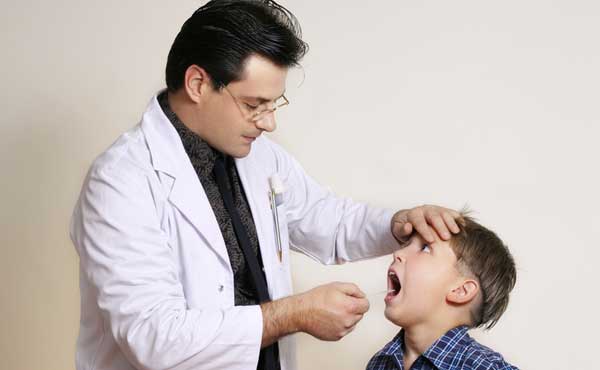Kids' Checkups Too Short to Address Health Issues

A third of children get 10 minutes or less with their doctor at checkups, says a new study, and the findings are prompting the authors and others to call for pediatricians to change their interactions with patients and their families.
Researchers at the University of California, Los Angeles surveyed 2,000 families with children ages 4 months to two years old. They asked questions about how much time parents spent with the doctor and how satisfied they were with the medical care.
Parents typically reported being satisfied with care, and it was unclear how much the lack of time may affect the health of their children. But the researchers said discussions about kids' behavior – often dropped from the shorter appointments — may ultimately have the biggest impact on the child's wellbeing.
"Particularly, psychosocial developmental issues that are more complicated and take more time," were more likely to be left out of shorter appointments, said study author Neal Halfon, director of the UCLA Center for Healthier Children, Families & Communities and a professor of pediatrics.
The study also showed that it was parents who were more likely to have children with more health problems — those with public insurance and those with less education, for example – who tended to get longer appointments.
Insurance reimbursement was cited as one possible reason for this, as public programs may pay more for appointments for children who require more medical care, the study showed.
"I think in this particular study, it's likely many of the people who got very short visits did okay because it's very likely to be people of very high socioeconomic status," said Dr. Lawrence Wissow, a professor of health, behavior and society at the Johns Hopkins Bloomberg School of Public Health.
Sign up for the Live Science daily newsletter now
Get the world’s most fascinating discoveries delivered straight to your inbox.
But with a slowing economy, and many more people without insurance, that may change for the worse, said Wissow, who was not involved with the study.
The rise of obesity, diabetes and ADHD
Going forward, Halfon said, researchers should look at how this decline in time with the doctor may affect children.
"There's something happening that's leading to a bigger burden of chronic health problems in the population, and these problems start in children," Halfon said, noting the rise of conditions such as obesity, diabetes and cardiovascular disease, as well as ADHD, autism and other behavioral learning problems.
"They all trace back to what happens to us early in life, and so we all need to be paying attention to that," said Halfon.
Halfon said it was unclear what the affect of longer visits would have on these health problems, but it should be examined.
"They have big implications for the country in terms of long-term health costs," he said.
Halfon noted there are programs working to find ways to improve checkups — they may have behavioral specialists work within a pediatrics practice, or make group appointments, where mothers with similarly-aged children come together to ask questions and then have a social network for support afterward.
Parents should get more say
"We know a significant majority of parents coming into visits have concerns for child's behavior," said Dr. Paul Dworkin, chairman of pediatrics at the University of Connecticut School of Medicine. "A similar percentage leave the office with concerns for their children's behavior. Behavioral concerns are not being effectively identified."
Doctors need to ask parents if they have concerns about their kids' behavior, and need to do more, he said, to connect parents with community programs that can help children.
"Linkage to these programs can make a tremendous difference in behavioral concerns," said Dworkin, who founded a program called Help Me Grow that connects parents to such community resources.
Such programs could prevent behavioral concerns from developing into full-blown problems later on, which are much harder and more expensive to deal with, he said.
The study is published online today (Sept. 19) in the journal Pediatrics.
This story was provided by MyHealthNewsDaily, a sister site to LiveScience.










